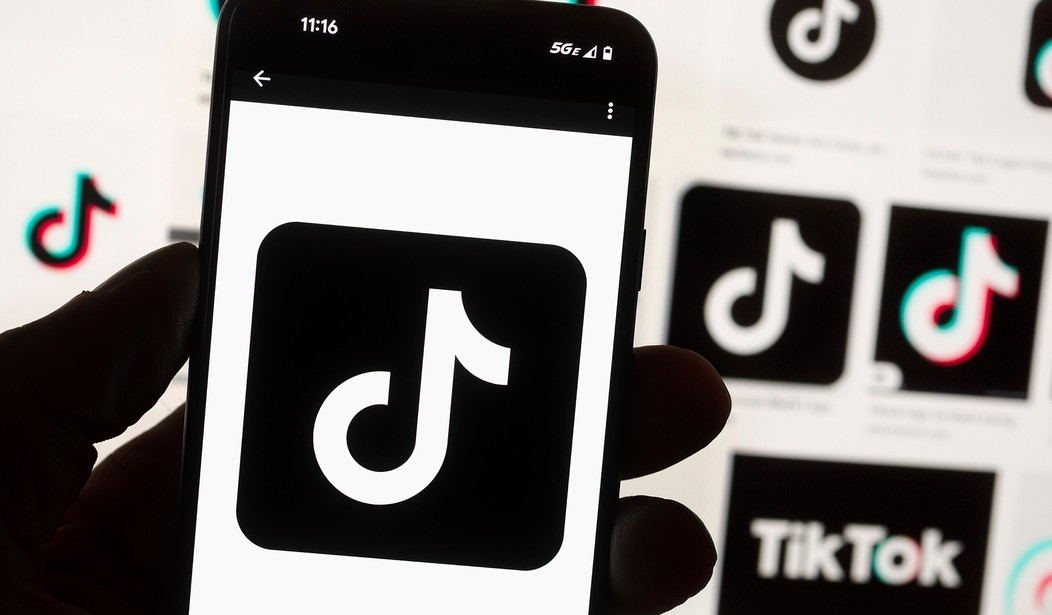Scores of self-described "TikTok refugees" have fled to another Chinese-owned app in response to Congress taking action against the CCP-tied video sharing site.
Ahead of Sunday's temporary shutdown, more than half a million U.S. users had flocked to the Shanghai-headquartered social networking forum Xiaohongshu, which translates to "little red book" in English, a reference to Chairman Mao Zedong's collection of quotations.
Xiaohongshu, also known as "RedNote," was co-created by Charlwin Mao Wenchao and Miranda Qu Fang, who is a member of the globalist World Economic Forum's young global leaders initiative.
Liberals like Taylor Lorenz are pushing RedNote, which she advertises as "the hottest new social app in America."
"Long Live China," the former Washington Post tech reporter proudly proclaimed in Mandarin.
中国万岁
— Taylor Lorenz (@TaylorLorenz) January 13, 2025
RedNote may pose a greater national security threat than TikTok. Also among RedNote's red flags, a Pentagon-identified "Chinese military company" is a major shareholder in it. In recent years, RedNote received rounds of funding from Chinese tech conglomerate Tencent, which was added earlier this month to the U.S. Department of Defense's blacklist of companies affiliated with the People's Liberation Army. On January 7, the DoD designated Tencent as an entity either under the control of the Chinese military or "a military-civil fusion contributor to the Chinese defense industrial base."
As early as 2018, Tencent began investing in RedNote by joining the Alibaba group's purchase of a $300 million stake in the then-fledgling social media site, accounting for a tenth of RedNote's value at the time. Three years later, Tencent joined Alibaba again on a $500 million investment in RedNote.
Tencent CEO Ma Huateng served two terms as deputy to China's CCP-controlled National People's Congress. Alibaba also has documented ties to the Chinese regime. The well-known RedNote investor developed a pro-CCP propaganda app, is partially state-owned, and sold off facial recognition technology that detects members of China's minority Muslim population.
Tencent, meanwhile, is reportedly seeking to buy more shares in the TikTok rival amid RedNote's skyrocketing popularity in the West.
The purpose of Gen Z America's mass migration to RedNote, other than finding a TikTok substitute, is to retaliate against U.S. lawmakers in what they call "an act of rebellion" revolting against "government overreach." Many are mocking Washington's data collection concerns.
Recommended
On RedNote, new American users are joking about willingly handing over data and finally connecting with their "Chinese spies."
"We're giving our information directly to the Chinese government now," one content creator touted on TikTok. "The communists just have our information directly because of you guys, because of what you did."
Another user said she "gleefully accept[ed] RedNote's privacy policy without even reading it out of spite."
Community guidelines are currently only in Chinese. According to the app's terms of service written in Mandarin, it appears RedNote openly admits to having the right to not only take, but own a user's personal data, including IP addresses and browsing history, in perpetuity. RedNote also explicitly states it will share this information with "third-party service providers" or "relevant government authorities."
Moreover, since RedNote is subject to CCP censorship, Americans are encountering the country's free speech suppression practices firsthand as they experience a semblance of China's surveillance state.
Chinese users instructed American newcomers in a RedNote group chat on how to avoid being banned for bringing up topics deemed taboo or disparaging towards the Chinese Community Party.
"Welcome, but do not say anything about LGBTQ+. Thank you!" wrote a Beijing-based user, according to Newsweek, after several Americans asked if RedNote is "queer-friendly." The Advocate, an American LGBTQ+ magazine, reported that one U.S. woman was banned for mentioning "trans plight" in one video and wearing a low-cut top showing "a tiny bit of cleavage" in another. Others have had their posts removed or accounts summarily suspended for similar reasons, as the content violated restrictions related to preserving the "public moral order."
In 2022, a California non-profit that covers censorship in China—called The China Digital Times—published a trove of leaked documents exposing how RedNote's content moderation team prohibits or suppresses such politically sensitive posts.
The investigation discovered a crackdown on over 500 derogatory nicknames for China's leader Xi Jinping, widespread criticism of the CCP, and discussion of certain events that could incite public panic, such as labor strikes, human rights abuses in Xinjiang, and student suicides. According to an English translation of RedNote's internal "Public Opinion Monitoring System & Management Procedures," the site's censorship apparatus identifies discourse about "Societal incidents that could trigger political or social unrest and threaten national security." Additionally, searching for the Tiananmen Square massacre yields no results on RedNote, and talking about Taiwan must conform to the state-approved political narrative.
A number of Chinese netizens are already reporting American users for breaching RedNote's censorship rules, according to Chinese media, telling U.S. arrivals to "respect" the online community's fragile ecology or else.
Given that RedNote does not have a built-in translation function and most of the content is in Mandarin, some Americans are trying to learn the language, including sharing translations of popular slang phrases with Chinese commenters. Duolingo tweeted Wednesday that the language learning app witnessed a whopping 216 percent increase in Mandarin learners in the U.S. compared to this time last year.
Modeled after RedNote, the Singaporean app—also owned by ByteDance, the developer of TikTok—went down as well Saturday night. According to the U.S. law pertaining to TikTok, the term "foreign adversary controlled application" means all apps "operated, directly or indirectly (including through a parent company, subsidiary, or affiliate), by any of ByteDance, Ltd." This includes subsidiaries and successors. So, although Lemon8 was not explicitly mentioned in the statute, the divest-or-be-banned ultimatum likely also extends to the TikTok "backup app."
In November, Lemon8 began to be integrated with TikTok. Users were allowed to link their profiles between services and find their followers. TikTok had heavily promoted its sister app through sponsored posts that advertised Lemon8, even encouraging U.S. users to migrate there, according to Axios.
"TikTok actually has another backup app. It's called Lemon8 [...] and it automatically signs you in with your TikTok so you can still keep the same TikTok name and things like that. And it's supposed to transfer your followers over," a TikTok creator said in a sponsored video. "Once you add Lemon8, it automatically pops up on your TikTok bio, so that people can just click on it."
Also beginning late that month, a TikTok notice informed users that Lemon8 would be powered by TikTok's data. "Your Lemon8 profile link will be shown to your TikTok profile publicly by default," the notification said. A spokesperson for ByteDance claimed that the backend integration between TikTok and Lemon8 was unrelated to the looming U.S. ban.
RedNote could face the same regulatory scrutiny as TikTok under the Protecting Americans from Foreign Adversary Controlled Applications Act and be banned, too, if it's not divested, a U.S. official told CBS. The bill generally applies to any platform that has more than 1 million monthly users and is being controlled by a company located in a designated "foreign adversary" country.
Over the weekend, RedNote and Lemon8 ranked No. 1 and No. 2, respectively, topping the U.S. charts in both Apple's and Google's app stores. Market research firm Sensor Tower told NPR that U.S. mobile downloads of RedNote increased more than 20 times over the seven-day period beginning on January 8, compared to the previous week, and at least a fifth of RedNote's total app downloads so far this month have come from the U.S. According to analytics firm Similarweb, RedNote recently gained almost 3 million U.S. users in a single day.
Nevertheless, Beijing authorities are unlikely to allow swarms of young Americans to culturally influence Chinese youth. Given the fact that popular platforms like Google and Facebook are blocked in China, this marks the first time for people from both countries to be directly interacting online with one another.
"Those equating Beijing's internet policies to America's — as broken as they may be — are in for a rude awakening," says Bloomberg Opinion columnist Catherine Thorbecke, who covers Asian tech. "And they should recognize that their new Chinese friends participating in political discourse are at greater risk when a crackdown inevitably comes." In China, violations of the censorship rules could result in legal repercussions, including jail time.
RedNote was never meant to be accessed outside of the Chinese market, a cybersecurity expert at Nord VPN told CBS News. All of the data sharing and servers to which the data is shared are in China, meaning that this might place the matter outside U.S. government oversight.
For now, the influx of Americans is challenging RedNote's censorship system in unprecedented ways.
"The fact that Americans are using Xiaohongshu is already [stepping] on the red line," China Digital Times editor Eric Liu, a former content moderator for Weibo, told Rest of World. "This is something that will not be able to last because Americans don't practice self-censorship."
To comply with Beijing's commands, RedNote may need to establish a barrier between domestic and foreign users, as ByteDance did with Douyin, the Chinese version of TikTok, which is not available for download in the U.S. It remains to be seen whether the "refugee traffic" will entice RedNote to launch an international business model.
Last week, RedNote posted local job listings urgently recruiting English content reviewers in mainland China, promising a monthly salary of between $950 and $1,200.

























Join the conversation as a VIP Member